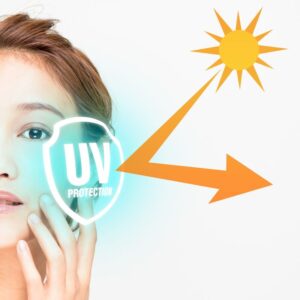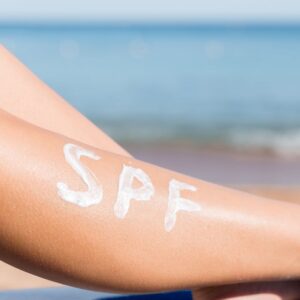Best sunscreens for different skin types
Understanding Sunscreen Basics
Sunscreen is essential for protecting our skin from the harmful effects of ultraviolet (UV) radiation. UV rays, namely UVA and UVB, can cause sunburn, premature skin aging, and increase the risk of skin cancer. Choosing the right sunscreen involves understanding your skin type, SPF levels, ingredients, and specific needs.
Types of Sunscreens
1. Chemical vs. Physical (Mineral) Sunscreens:
- Chemical Sunscreens: Contain active ingredients like avobenzone, octinoxate, and oxybenzone. They absorb UV radiation and convert it into heat, which is then released from the skin.
- Physical (Mineral) Sunscreens: Contain active minerals such as zinc oxide and titanium dioxide. They work by sitting on the skin’s surface and deflecting or scattering UV rays away from the skin.

2. Broad-Spectrum Protection:
- UVA vs. UVB: UVA rays penetrate deeply into the skin, causing aging and contributing to skin cancer. UVB rays primarily cause sunburn and can also contribute to skin cancer. Broad-spectrum sunscreens protect against both types of rays.

3. SPF (Sun Protection Factor):
- SPF 15 vs. SPF 30 vs. SPF 50: SPF indicates how long it takes for UVB rays to redden the skin compared to without sunscreen. SPF 15 blocks about 93% of UVB rays, SPF 30 blocks about 97%, and SPF 50 blocks about 98%. SPF 30 is generally recommended for everyday use, while higher SPFs are better for prolonged sun exposure.

Sunscreens for Different Skin Types
1. Normal Skin:
Normal skin types typically tolerate a wide range of sunscreen formulations:
- Recommendations: Lightweight, broad-spectrum SPF 30-50 sunscreens like Neutrogena Ultra Sheer, La Roche-Posay Anthelios, and EltaMD UV Clear.
2. Sensitive Skin:
Sensitive skin requires gentle, non-irritating formulations to avoid reactions:
- Recommendations: Mineral sunscreens with zinc oxide or titanium dioxide, such as Vanicream Sunscreen, Blue Lizard Sensitive, and Aveeno Sensitive Skin.
3. Oily or Acne-Prone Skin:
Oily or acne-prone skin needs oil-free, non-comedogenic sunscreens that won’t clog pores:
- Recommendations: Gel-based or lightweight formulas like Neutrogena Ultra Sheer Dry-Touch, La Roche-Posay Anthelios Clear Skin, and EltaMD UV Clear.
4. Dry Skin:
Dry skin requires hydrating or moisturizing sunscreens to prevent further dryness:
- Recommendations: Sunscreens with added moisturizers like hyaluronic acid or glycerin, such as Cerave Hydrating Mineral Sunscreen and Aveeno Protect + Hydrate.
5. Combination Skin:
Combination skin benefits from lightweight, hydrating sunscreens that balance oil production:
- Recommendations: Gel-based formulas like La Roche-Posay Anthelios Melt-in Milk or Coola Classic Face Sunscreen.
6. Aging or Mature Skin:
Aging or mature skin needs sunscreens with added anti-aging ingredients:
- Recommendations: Sunscreens with antioxidants (e.g., vitamin C, E) and peptides like SkinCeuticals Physical Fusion UV Defense and EltaMD UV Elements.
7. Sport or Water-Resistant Needs:
For activities involving water or heavy sweating, water-resistant sunscreens are essential:
- Recommendations: Sunscreens labeled as water-resistant for at least 80 minutes, such as Coppertone Sport or Banana Boat Ultra Sport.
Choosing the Right Sunscreen
- Ingredients to Avoid: Certain chemical filters like oxybenzone and octinoxate are controversial due to potential hormone disruption. Opt for oxybenzone-free or chemical-free alternatives if concerned.
- Skin Sensitivities: Perform a patch test before applying a new sunscreen to check for allergic reactions or irritation.
- Application Tips: Apply sunscreen generously and evenly 15-30 minutes before sun exposure. Reapply every 2 hours or immediately after swimming or sweating.
Conclusion
Selecting the best sunscreen involves considering your skin type, SPF needs, and specific preferences such as fragrance-free or water-resistant formulas. Whether you have normal, sensitive, oily, dry, combination, aging, or sport-related needs, there are numerous sunscreen options available to protect your skin effectively from harmful UV rays. Always consult with a dermatologist for personalized recommendations based on your skin’s unique requirements and any specific concerns. By choosing the right sunscreen, you can enjoy the outdoors safely while maintaining healthy and protected skin.


Comments